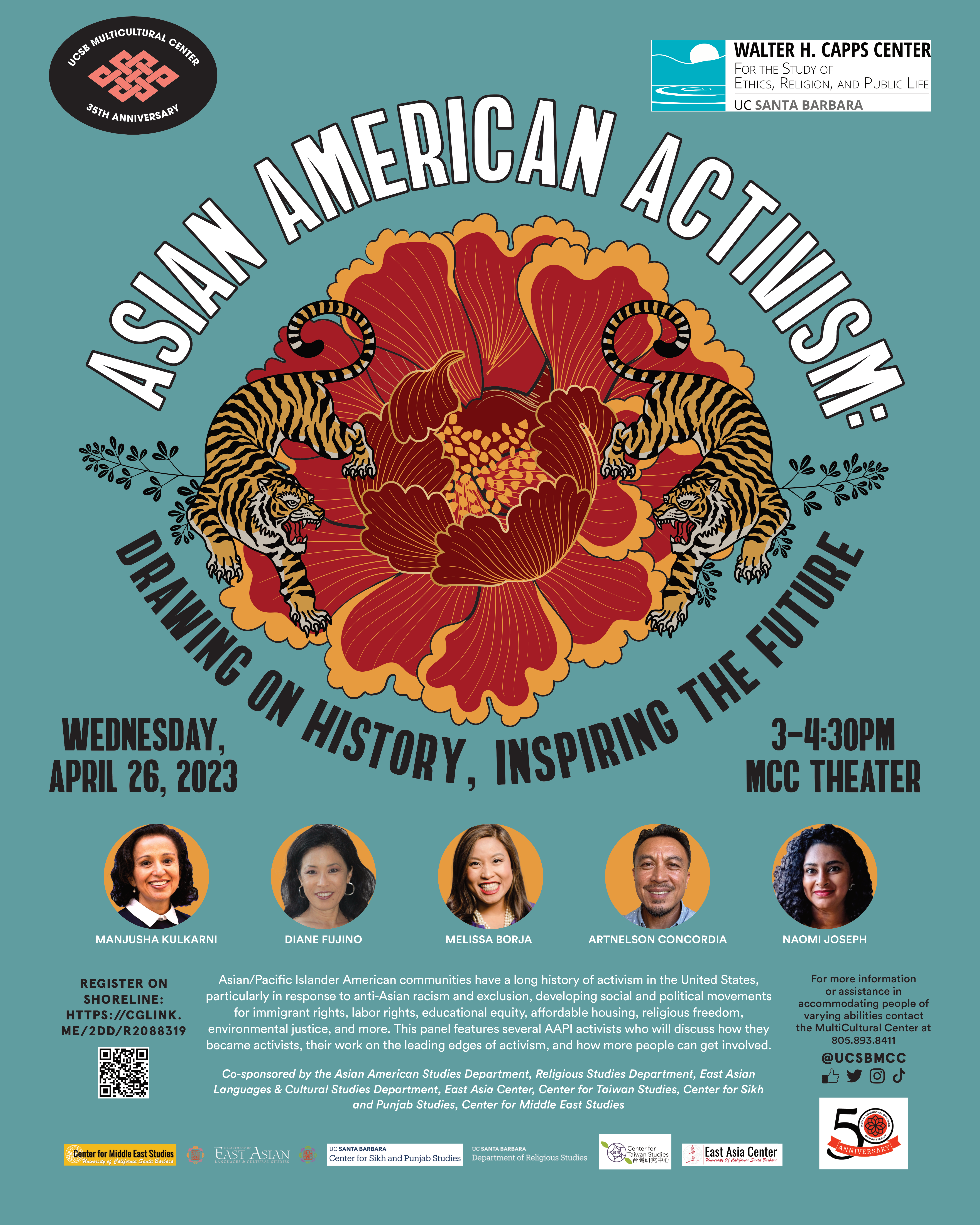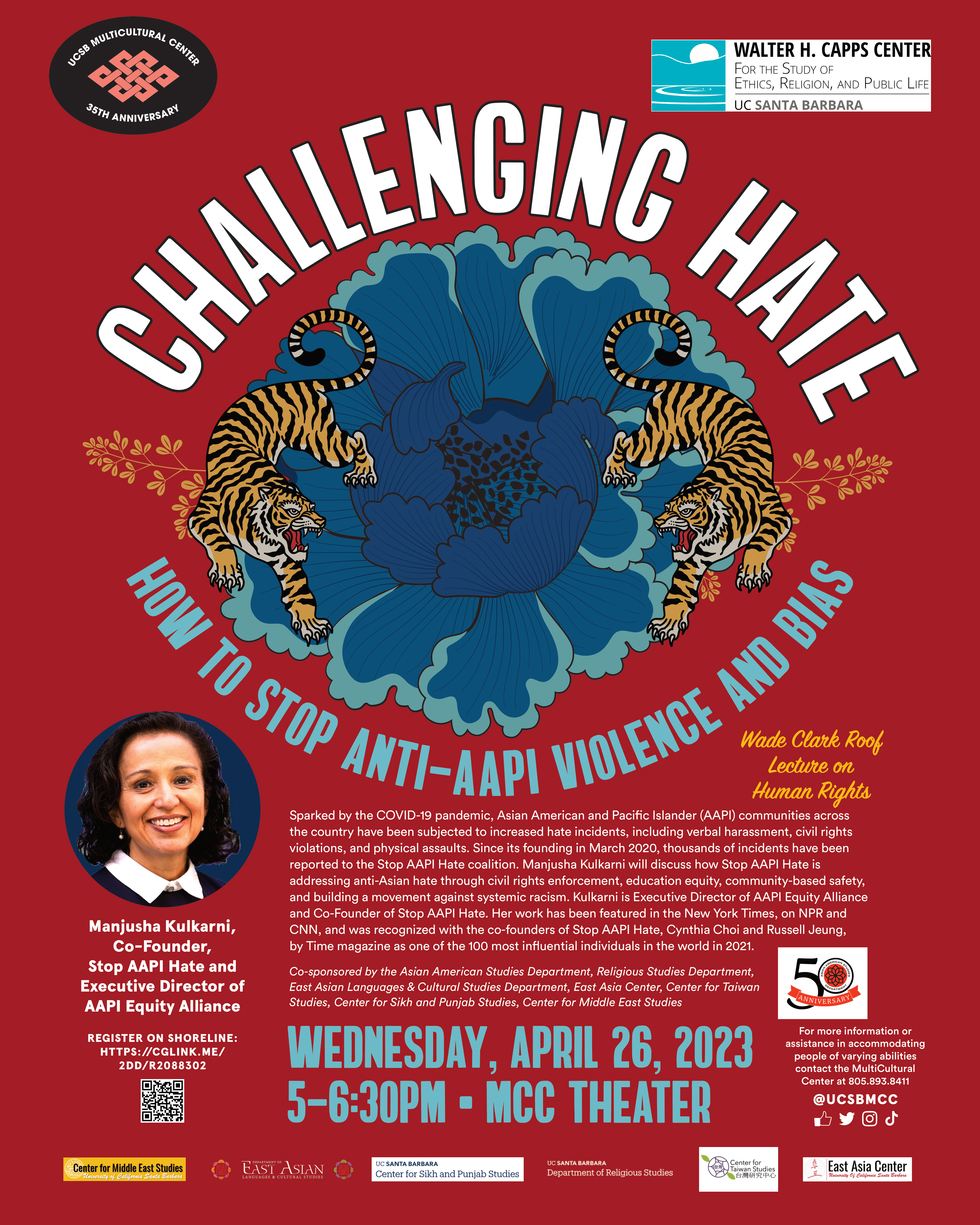The Capps Center is pleased to participate in the following initiatives:
Walter H. Capps Archives Online
The Capps Center is digitizing archival materials from the Walter H. Capps Papers held at UCSB Library's Special Research Collections to put on our website's Archives page. We are especially focused on materials related to Walter's famous courses on the Vietnam War and "Voices of the Stranger," as well as his course on "Religion and Politics in America Today," but also include items related to his scholarship, teaching, and public service. Hyperlinked PDFs of unpublished writings; course syllabi, lecture notes, and other teaching materials; letters, reports, and materials related to the humanities and centers for the study of religion and public life; sermons; personal correspondence; and political campaign and congressional materials. The webpage also includes a list of Walter's published articles, book chapters, and book reviews; secondary works about Walter and reviews of his books, including statements by President Bill Clinton and academic scholarship engaging Walter's ideas; news articles about Walter's life, career, and courses. In addition, we have digitized nearly 100 video recordings of Walter's lectures and course materials, which we will make available on our YouTube page. The Archives webpage will be updated periodically with additional materials.
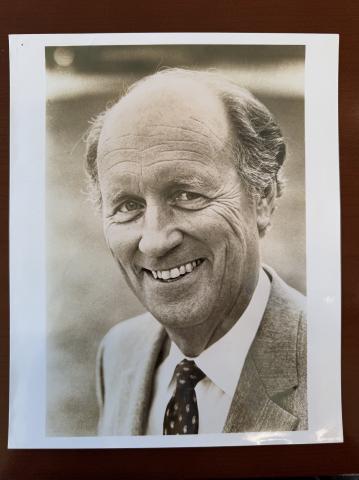
Civic Engagement Scholars Program (CESP)
The Civic Engagement Scholars Program (CESP) fosters ideals of active citizenship among students, engaging the next generation of leaders on issues that are of import to our campus and to the surrounding communities of Isla Vista, Goleta, and Santa Barbara. We create alliances with leaders and organizations in those communities to provide students with opportunities to develop their leadership and organizing skills and to affect measurable, positive change.
The inaugural cohort of students launched the class in 2021-2022. Each year, students are enrolled in a three-quarter-long course, Seminar in Civic Engagement and Deliberative Democracy (RS 188ABC), which begins each Fall Quarter. During the first quarter of the course, students study the theoretical framework and historical background of civic engagement in the American university. While doing so, they engage in leadership development, learn skills for deliberative discourse, and design workshops incorporating these issues and skills. In the Winter and Spring quarters, students deliver their designed workshops to the campus and to the Isla Vista, Goleta, and Santa Barbara communities.
The course is taught by Dr. Katya Armistead (former Associate Vice Chancellor, Student Life, and current Co-Executive Director and Facilitator at Leading From Within) and Dr. Viviana Marsano (Assistant Dean, Civic and Community Engagement). It is the result of a collaboration between the Capps Center, the Dean of Students, and the Offices of Civic and Community Engagement and Student Engagement and Leadership. The program received initial funding from the UC Center for Free Speech and Civic Engagement for four years. We would also like to thank the Someone Else's Child Foundation for their generous support for the program.
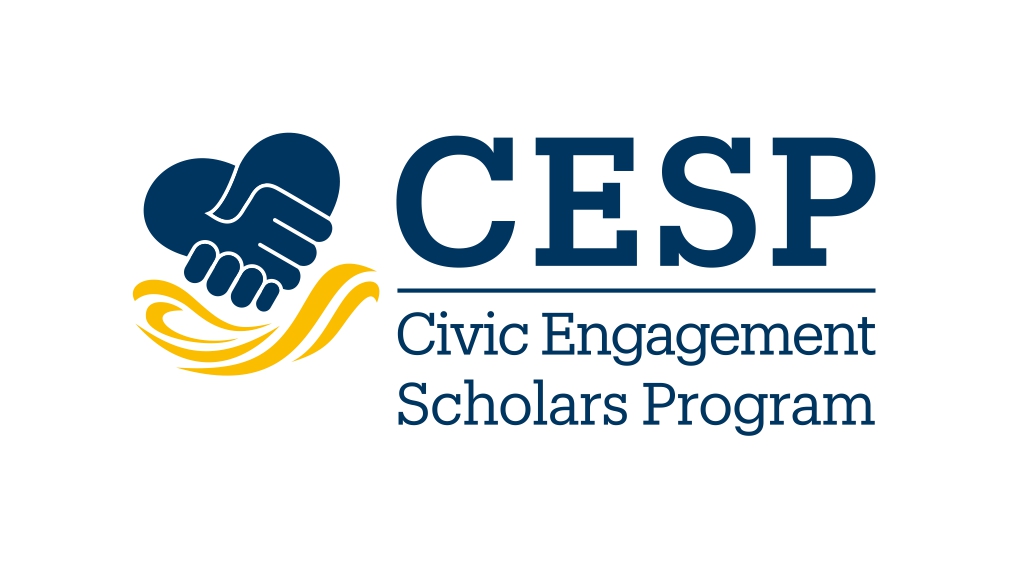
The United Nations Declaration on the Rights of Indigenous Peoples (UN DRIP) Implementation Project
The United Nations Declaration on the Rights of Indigenous Peoples (UN DRIP) was adopted by the UN General Assembly in 2007. The Declaration is the most comprehensive global statement addressing the human rights of indigenous peoples. It establishes a universal framework of minimum standards for the survival, dignity, and well-being of the indigenous peoples of the world and it elaborates on existing human rights standards and fundamental freedoms as they apply to the specific situation of indigenous peoples. It emphasizes the rights of indigenous peoples to live in dignity, to maintain and strengthen their own institutions, cultures, and traditions, and to pursue their self-determined development, in keeping with their own needs and aspirations.
The Implementation Project (TIP) aims to raise awareness of the United Nations Declaration on the Rights of Indigenous Peoples and to provide information and support for implementation efforts in Indian Country.
In 2022, Capps Center Director and Professor of Religious Studies Greg Johnson co-organized a series of workshops in Hawai'i. TIP and the Capps Center held discussions with Native Hawaiian cultural practitioners, leaders, experts, attorneys, and advocates about using the UN Declaration on the Rights of Indigenous Peoples (the Declaration) to protect their peoples and communities. The sessions explored ways the Declaration can support the protection of sacred places, language revitalization, food sovereignty, and cultural rights among Native Hawaiian communities. After the discussions, TIP will collaborate with Professor Johnson and other partners to create a publication about Hawai’i and the Declaration. Professor Johnson studies the intersection of law and religion in Hawaii, and has participated in TIP-related events and publications.
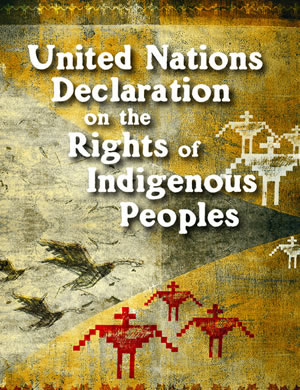
Repatriation at UCSB and Beyond
In step with Walter Capps’ interest in Native American communities and human rights, the Capps Center is actively focusing on repatriation work through its programming as well as direct involvement with the campus and community on this important issue. We are eager to continue engaging Chumash and other Native nations in the effort to facilitate the timely return of their ancestors.
Capps Center director Greg Johnson currently serves on the UCSB NAGPRA Oversight Committee, which is charged with implementation of federal and state repatriation laws and UC system policy. The committee is one component of UCSB’s rejuvenated repatriation effort. To facilitate the committee’s work, the Capps Center hosted repatriation expert Edward Halealoha Ayau in October of 2021 to speak with the committee about best practices in dealing with Indigenous communities in repatriation consultations.
Gerardo Aldana, a former Capps Center Faculty Advisory Board member and Professor of Chicana and Chicano Studies UCSB, is Director of the Repository for Archaeological and Ethnographic Collections, which holds a vast number of indigenous artifacts and human remains. Aldana is helping to oversee efforts to repatriate ancestral remains held at UCSB.
In addition to its campus-oriented work, the Capps Center has organized two panel discussions about repatriation in recent years. The first, which was convened in the Winter Quarter of 2021, focused on repatriation as a human right. The second, convened in the Winter Quarter of 2022, addressed the complexities of international repatriation. Recordings of both events can be found on our video page.
In 2025, the Capps Center launched a project on religion and repair in Indigenous communities. This effort will include community members and scholars from a range of locations across the U.S. and will focus upon three interrelated themes: repatriation, land protection, and educational access. This program is supported by the Henry Luce Foundation and will be inaugurated by two workshops during Winter and Fall quarters 2025, the first focusing on repatriation and the second on land and education. Our hope is to build upon the outcomes of these convenings to sustain this important work over the next several years in conjunction with our partners. In May 2025, our repatriation partner Edward Halealoha Ayau, a Native Hawaiian, successfully repatriated an important feathered cape from the Smithsonian, and in August 2025 our partner Dolly Kikon, who is Naga, led a delegation of Naga leaders to visit the Pitt Rivers Museum in June 2025 to discuss repatriation of ancestral remains (read Kikon's closing remarks and a news report here).
Due to the efforts of Johnson, Aldana, and local Chumash communities, UCSB is finally starting to address its non-compliance with laws governing the repatriation of indigenous ancestral remains.
Here is a recent piece on repatriation by Miriam Hamburger, a UCSB Religious Studies PhD student working with Greg Johnson. Read coverage of our Winter 2025 panel on Repatriation Futures here.
We will continue to support repatriation efforts and related programming. Check back here for updates on our repatriation-related work.
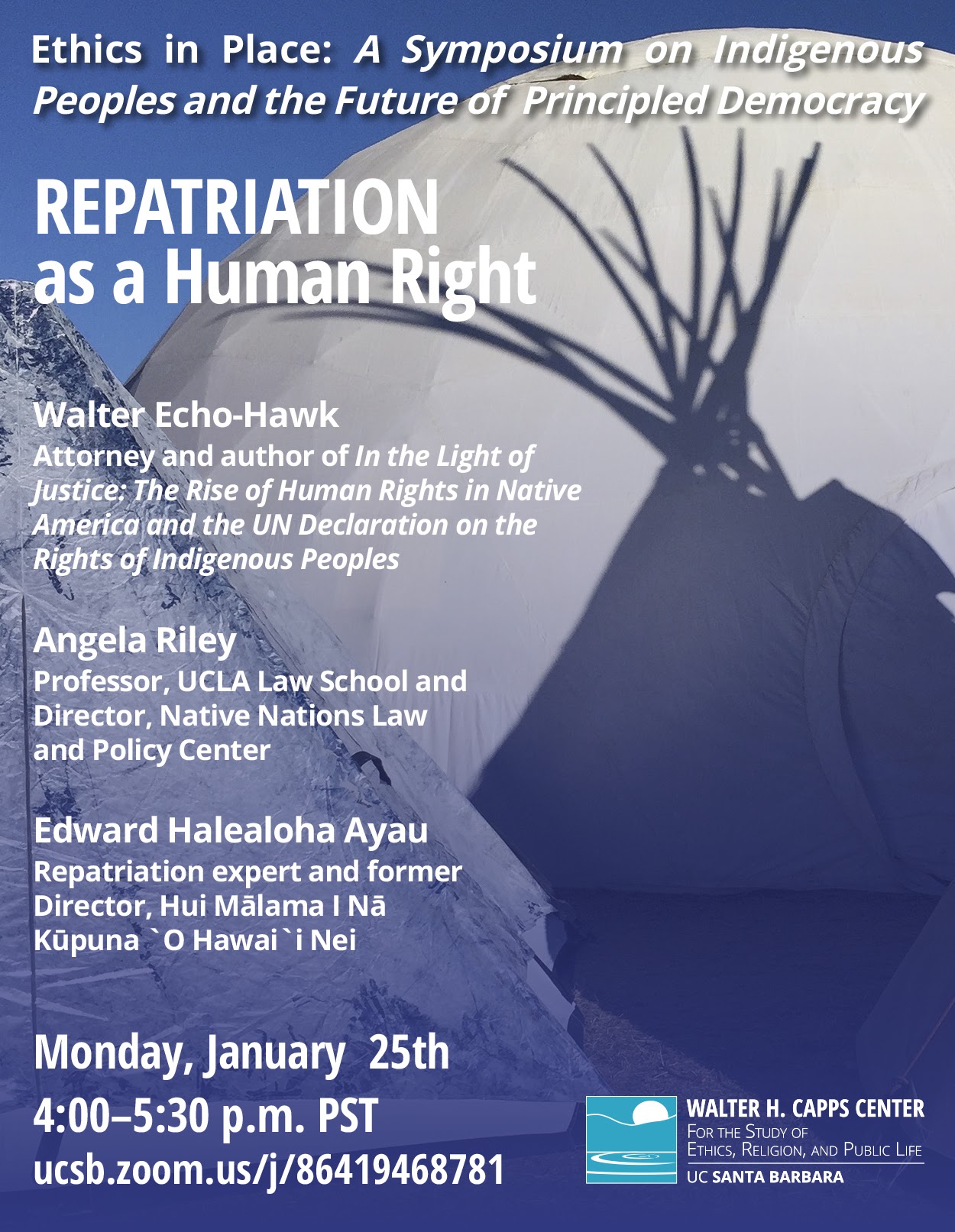
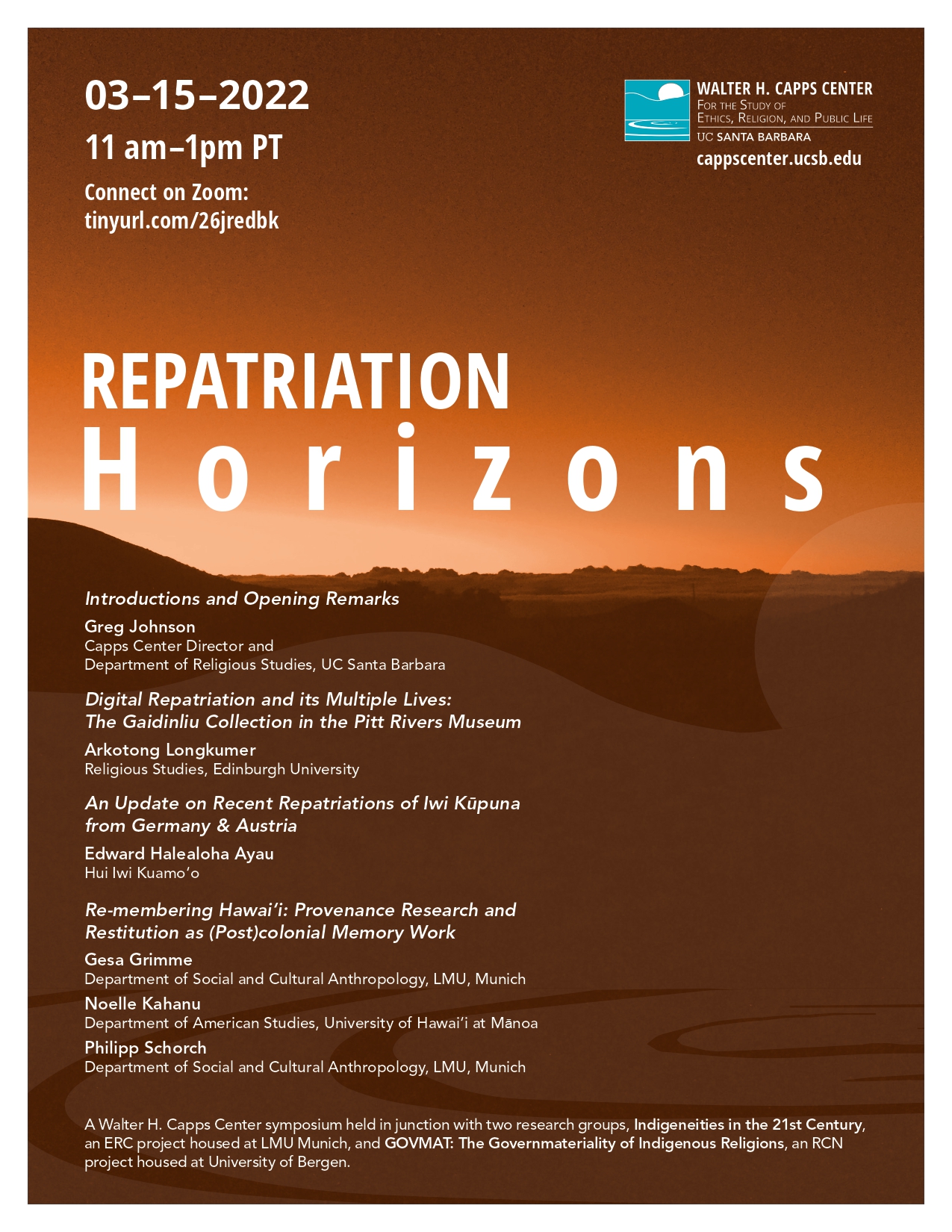
Planning Collaborative Wildfire Science and Management
Greg Johnson, Director of the Capps Center, won a National Science Foundation grant as part of a team researching how to connect Indigenous communities with key decision makers in wildfire management. This joint effort between UCSB, UC-Irvine, and Tribal Partners aims to elevate the expertise and voices of Native Americans in debates about how to manage wildfires in the Payahuunadü/Owens Valley & Eastern Sierra regions of California. Wildfires in this area have grown increasingly dangerous, as they have across California and the West.

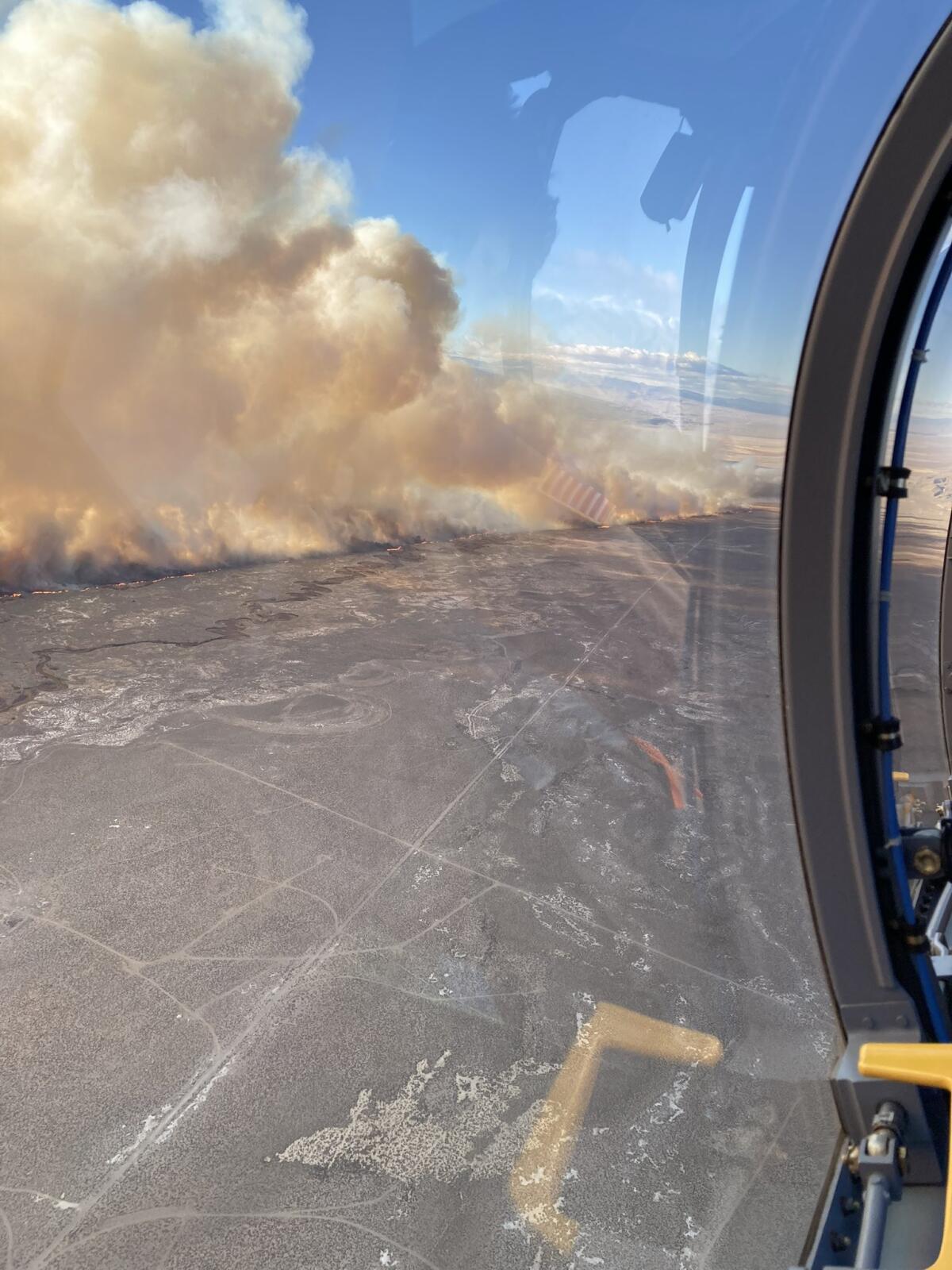
UC DRN (Disaster Resilience Network)
The University of California’s Disaster Resilience Network (UC DRN) is a multidisciplinary, UC-wide launchpad for faculty, students and staff to bring our unparalleled collective talents to address disasters and crises of all stripes as we improve resilience outcomes across barriers. UC DRN, officially inaugurated in 2021, will provide a platform for collating talent, matching UC resources with external needs, conducting research, training leaders and researchers to contribute to resilience, and thereby assisting communities facing unprecedented challenges. Backed by science and the multiplicative strength of the ten-campus UC system, UC DRN will inform action that considers all facets of prevention, preparedness, response, and recovery, including the health, safety, socioeconomics, equity, and environmental sustainability of communities.
Since 2022, the Capps Center and its director, Greg Johnson, have been part of the UC DRN's Campus-based Committee at UCSB. We are currently partnering with Richard Applebaum, Distinguished Research Professor Emeritus of Sociology and Global Studies at UCSB, UCSB's Sedgewick Reserve, the Santa Ynez Chumash Environmental Office's Good Fire Project, Santa Barbara County's Fire Safe Council, and the Community Environmental Council on a pilot project that will enable UC Natural Reserve System (NRS) land managers and community stakeholders to prescribe customized fuels treatments in order to maximize reserve and community resilience to wildfire under a range of projected climate extremes.
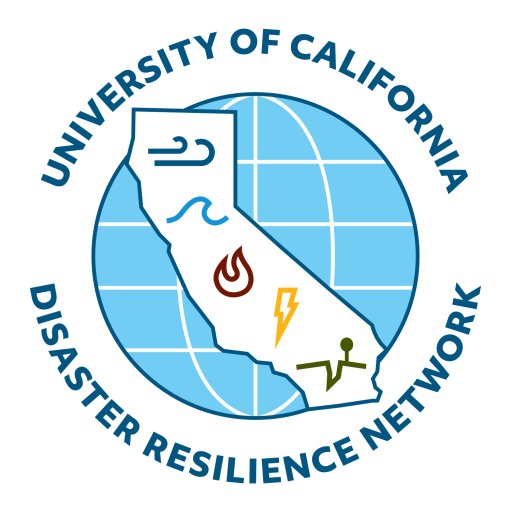
Asian American and Pacific Islander (AAPI) Programming and Research
Asian Americans and Pacific Islander Americans are the fastest-growing racial or ethnic group in the United States today, and comprise 29% of the UCSB student body. Led by Capps Center Associate Director Dusty Hoesly, the Capps Center has created a series of programs and research initiatives focused on AAPI populations. These include presenting public lectures and programs; addressing anti-Asian hate and creating a campus climate for AAPI safety and excellence; and research on Asian American religions.
Public programming has included a lecture by Melissa Borja on refugee resettlement policy and religious change; a panel on Asian American activism featuring national and local AAPI activists; a lecture by Manjusha Kulkarni, co-founder of Stop AAPI Hate, on how to stop anti-Asian violence and bias; a lecture by Russell Jeung, co-founder of Stop AAPI Hate, on racial trauma and posttraumatic healing; and a lecture by Grace Yia-Hei Kao on Asian American reparations. Several of these programs have sought to end the bias, harassment, and violence that many AAPI people have experienced since the start of the Covid-19 pandemic.
The Capps Center has partnered with UCSB's Vice Chancellor for Diversity, Equity, and Inclusion to join the AANAPISI Task Force, which seeks to secure federal funding to improve and expand UCSB's capacity to serve AAPI and low-income students. UCSB is an Asian American and Native American Pacific Islander-Serving Institution (AANAPISI) but has yet to receive federal funding to support these students. Part of the Capps Center's work on this initiative includes improving the campus climate for this population.
Associate Director Dusty Hoesly is engaged in research involving AAPI religious communities. He is co-editing a book on race, law, and Asian American religions with Melissa Borja (University of Michigan), for which we held a workshop at the University of Michigan in 2022 (funded by the Donia Human Rights Center) and at UCSB in 2024 (funded by a grant from the Henry Luce Foundation).
